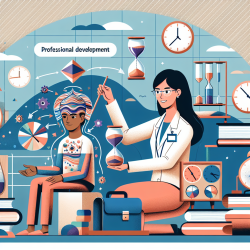Understanding the Social-Ecological Impact of Early Marriage and SGBV in Jordan
As practitioners dedicated to improving the lives of children, understanding the complex social-ecological factors surrounding early marriage and sexual and gender-based violence (SGBV) is crucial. The recent study titled A social-ecological examination into the research, policy and health service delivery environment related to early marriage and sexual and gender-based violence among youth in Jordan provides invaluable insights into these pressing issues.
Key Findings from the Research
The study synthesizes existing literature and perspectives from key stakeholders to highlight the prevalence and determinants of early marriage and SGBV among youth in Jordan. It reveals that these issues are deeply embedded within the social-ecological system, affecting individuals, families, communities, and policy levels.
- Prevalence of SGBV: The study indicates that SGBV is widespread among youth in Jordan, with young women being particularly vulnerable. Refugee populations, especially Syrian refugees, face heightened risks due to economic instability and social norms.
- Early Marriage Trends: Early marriage is increasing, particularly among Syrian refugees. This practice is often seen as a protective measure against economic hardship and social stigma.
- Policy and Legal Gaps: Despite ongoing programs, there are significant gaps in services and awareness. Legal frameworks often provide loopholes that perpetuate early marriage and SGBV.
Implications for Practitioners
For practitioners, these findings underscore the need for a multi-faceted approach to address early marriage and SGBV. Here are some actionable steps:
- Enhance Service Delivery: Improve awareness and accessibility of SGBV services, especially for youth. Training healthcare providers to screen for violence and provide appropriate care is essential.
- Community Engagement: Work with community leaders to shift social norms that support early marriage and SGBV. Programs should focus on educating families about the negative impacts of these practices.
- Policy Advocacy: Advocate for stronger legal protections against early marriage and SGBV. This includes closing legal loopholes and ensuring that policies are effectively enforced.
Opportunities for Further Research
The study also highlights the need for further research to fill existing gaps. Practitioners are encouraged to explore:
- The intersection of early marriage with health outcomes, including mental and reproductive health.
- The effectiveness of current programs and policies in reducing early marriage and SGBV.
- Innovative approaches to engage youth and communities in prevention efforts.
By leveraging the insights from this research, practitioners can play a pivotal role in creating safer environments for youth in Jordan and beyond.
To read the original research paper, please follow this link: A social-ecological examination into the research, policy and health service delivery environment related to early marriage and sexual and gender-based violence among youth in Jordan.










